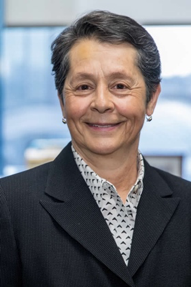The Metropolitan Atlanta Rapid Transit Authority (MARTA) is the largest and oldest public transportation agency in the southeast. This year, we marked its 40th anniversary as a bus-and-rail system with stellar Super Bowl service, a newly minted labor contract, and a historic, multi-billion-dollar transit expansion program well underway in our capital city.
While proud of the agency’s accomplishments, we were also facing a sobering reality: MARTA had a critical shortage of operators needed to pilot our bus fleet. That sprawling operation is comprised of 534 vehicles covering 110 routes and providing transportation for 1.3 million monthly riders.
By March 2019, we had a shortfall of 212 bus operators from our full complement of 1,327. Closing that gap meant hiring at least 80 candidates a month for the next four months while accounting for retirements and other factors of attrition. A daunting task, as we were only averaging 25 bus operator hires a month.
Externally, MARTA competes with other industries for skilled, qualified drivers and other personnel – an increasingly familiar refrain from transit systems nationwide. Internally, MARTA was lacking efficient business processes and the organizational mindset necessary to effectively manage our human resources. With the green-light from GM/CEO Jeffrey Parker, MARTA embarked on a comprehensive strategy to address our hiring, training, and retention needs while positioning us to deepen our commitment to sustained quality service for our customers.
To guide our efforts, we introduced the “Principles of Integrity,” a four-point philosophy that serves as a behavioral, moral compass to navigate the system-wide course correction we are undertaking. The principles are:
- Trust, honesty, and transparency
- Responsibility and respect
- Clarity of intent (mission and strategy)
- Honoring our commitments
Armed with this value-based road map, we convened a cross-functional task force of 25 staff members from 10 departments. Working subcommittees focused on key areas that impacted each of the functions and workflow elements associated with the bus operator experience. The task force evaluated existing business processes and mined copious data on hiring, route scheduling, training, performance reviews, employee surveys, and exit interviews.
As a result, we added recruiters, expanded our organizational partnerships, and increased the pool of interviewers available to vet job candidates. We streamlined the application process and expanded our use of online job search engines while partnering with outside groups on job fairs.
One of the most instructive exercises came from focus groups held by an independent firm that queried a sampling of bus operators, mechanics, and managers. They gave us unconstrained feedback about their needs and aspirations, and what they enjoyed most, and least about their jobs.
Even as we aggressively courted new bus operators, we worked to ensure that those already working for MARTA would stay on the job. In response to the focus groups’ feedback and surveys from incumbent operators, we conducted a “deep cleaning” of our bus garages, upgraded flooring, painted break rooms, hung new flat-screen TVs, and installed amenities to make the work environment more appealing and enjoyable.
We launched a campaign of rolling bus advertisements, social media, and billboards announcing that “MARTA is Hiring!” and highlighting our benefits package and long-term career opportunities. MARTA also doubled the $500 incentive for employees who refer successful bus operator candidates. So far, 32 employees have claimed the $1,000 reward.
Have we met our bus operator hiring target? Yes, we are quickly closing the gap on full-time operators and will be focusing on part-time operators in September. We have graduated more classes with more students—from 26 in April to more than 70 in July—and reduced full-time vacancies by over 90 percent. Importantly, MARTA also hired Collie Greenwood as Chief of Bus Operations. A 30-year veteran of the Toronto Transit Commission, Greenwood brings invaluable experience and is already implementing dynamic ideas to improve MARTA’s customer-centric approach to bus service.
The cultural transformation MARTA is executing requires discipline, patience, and persistence to ensure full integration, and we are committed to it. Actively tracking our progress and openly acknowledging that our work is just starting are keys to this ongoing journey of change. By re-aligning our core values –bringing in qualified people and re-engineering our business processes– we ensure that MARTA’s future is even brighter than its storied past.

Luz Borrero joined MARTA as Chief Administrative Officer in January of 2019. She is responsible for the oversight of the Departments of Human Resources and Information Technology, the Offices of Diversity and Inclusion, Research and Analysis and MARTA’s Customer Service Center. For the previous six years, Borrero was the Deputy Chief Operating Officer for Development for DeKalb County. Under her oversight were the Departments of Community Development, Human Services, Planning and Sustainability, Geographic Information Systems, Peachtree DeKalb Airport, Economic Development, and Workforce Development.




